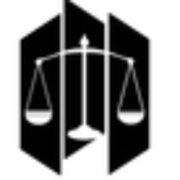Best Real Estate Lawyers in Whitby
Share your needs with us, get contacted by law firms.
Free. Takes 2 min.
Free Guide to Hiring a Real Estate Lawyer
List of the best lawyers in Whitby, Canada
Canada Real Estate Legal Articles
Browse our 1 legal article about Real Estate in Canada written by expert lawyers.
- Buying Property Abroad as a Canadian: A Legal Checklist
- Real estate law in Canada is mostly provincial, so rules on land registration, landlord-tenant rights, condos/strata, and land transfer tax differ by province and territory. For a typical home purchase, budget roughly 2% to 5% of the purchase price for closing costs in addition to your down payment, including land... Read more →
About Real Estate Law in Whitby, Canada
Real estate law in Whitby, Ontario, governs the buying, selling, leasing, and use of property within the region. Located in Durham Region, Whitby is part of the Greater Toronto Area and is subject to both provincial laws of Ontario and local municipal by-laws. Whether you are purchasing a new home, selling property, refinancing, or dealing with land use issues, understanding real estate law ensures your transactions are legally sound and your rights are protected.
Why You May Need a Lawyer
Navigating real estate transactions can be complex and involve substantial financial risks. Common situations where you may require legal assistance include:
- Buying or selling residential or commercial property
- Mortgaging or refinancing real estate
- Reviewing or drafting agreements of purchase and sale
- Landlord and tenant disputes
- Dealing with zoning or land use issues
- Title searches and resolving title defects
- Preparing or reviewing lease agreements
- Real estate litigation due to disagreements or contract breaches
A lawyer can ensure all documents are accurate, deadlines are met, and your interests are represented, helping you avoid costly mistakes.
Local Laws Overview
In Whitby, real estate transactions are governed primarily by provincial legislation, including the Ontario Real Estate and Business Brokers Act (REBBA), the Land Titles Act, and the Land Registration Reform Act. Municipal by-laws, official plans, and zoning regulations also significantly affect how land and property can be used or developed. Important aspects include:
- Land Registration: Most properties are registered under Ontario’s land titles system, providing clarity of ownership and rights.
- Transfer Taxes: Buyers must pay Ontario’s land transfer tax; Whitby does not impose an additional municipal land transfer tax.
- Zoning By-laws: Local by-laws dictate permitted property uses, building dimensions, and development rules.
- Condominium Law: If purchasing a condo, the Ontario Condominium Act outlines governance and rights.
- Renting: Residential landlord and tenant matters are regulated by the Ontario Residential Tenancies Act, with the Landlord and Tenant Board overseeing disputes.
Understanding these laws is critical for a smooth and lawful real estate experience in Whitby.
Frequently Asked Questions
What are the steps involved in purchasing a home in Whitby?
Typically, the process includes securing financing, making an offer, conducting home inspections, signing the agreement of purchase and sale, completing title searches, and closing the transaction with the transfer of ownership.
Do I need a lawyer to buy or sell a house in Whitby?
While it is not legally mandatory, it is highly recommended. A lawyer ensures all documents comply with the law, holds funds in trust, and registers the change of ownership.
What is a title search and why is it important?
A title search checks for legal ownership and any claims, liens, or issues affecting the property. It’s vital to ensure you obtain clear title upon purchase.
How is property tax assessed in Whitby?
Property taxes are calculated by the Town of Whitby based on the assessed value provided by the Municipal Property Assessment Corporation (MPAC) and the local tax rate.
What costs should I expect on top of the purchase price?
Additional costs may include land transfer tax, legal fees, adjustments for utilities and taxes, title insurance, home inspection fees, and moving costs.
Can a non-resident buy property in Whitby?
Yes, non-residents can buy property in Ontario, but may be subject to the Non-Resident Speculation Tax (NRST) and additional compliance requirements.
What happens if there is a dispute with my landlord or tenant?
Disputes are typically resolved through the Ontario Landlord and Tenant Board, which handles matters such as eviction, rent arrears, and maintenance issues.
Can I build or renovate my property as I wish?
You must comply with Whitby’s zoning by-laws and obtain building permits from the municipal Building Services department before constructing or renovating.
How do I know if there are restrictions on my property?
Restrictions may be found in the property’s title, municipal zoning by-laws, building codes, and subdivision agreements. A lawyer can help identify any such limitations.
What is title insurance and do I need it?
Title insurance offers protection against property title issues, such as fraud, errors, or undisclosed liens. It is strongly recommended, and sometimes required by lenders.
Additional Resources
If you need further assistance or information, consider reaching out to the following resources:
- Town of Whitby - Building and Planning Departments for permits, zoning, and development information
- Ontario Real Estate Association (OREA) for professional standards and resources
- Landlord and Tenant Board for tenancy disputes
- Ontario Ministry of Municipal Affairs and Housing for provincial housing laws
- Law Society of Ontario for lawyer referrals and legal information
- Municipal Property Assessment Corporation (MPAC) for property assessment details
Next Steps
If you require legal advice regarding real estate in Whitby, start by gathering all relevant documents related to your matter, such as agreements, title records, and correspondence. Research and contact a local real estate lawyer who is licensed in Ontario. Many lawyers offer initial consultations to discuss your situation and outline potential steps forward. Prepare a list of questions and any concerns you have so you can make the most of your appointment. For urgent matters, such as legal disputes or imminent transactions, seek legal assistance promptly to ensure your interests are appropriately protected.
Lawzana helps you find the best lawyers and law firms in Whitby through a curated and pre-screened list of qualified legal professionals. Our platform offers rankings and detailed profiles of attorneys and law firms, allowing you to compare based on practice areas, including Real Estate, experience, and client feedback.
Each profile includes a description of the firm's areas of practice, client reviews, team members and partners, year of establishment, spoken languages, office locations, contact information, social media presence, and any published articles or resources. Most firms on our platform speak English and are experienced in both local and international legal matters.
Get a quote from top-rated law firms in Whitby, Canada — quickly, securely, and without unnecessary hassle.
Disclaimer:
The information provided on this page is for general informational purposes only and does not constitute legal advice. While we strive to ensure the accuracy and relevance of the content, legal information may change over time, and interpretations of the law can vary. You should always consult with a qualified legal professional for advice specific to your situation.
We disclaim all liability for actions taken or not taken based on the content of this page. If you believe any information is incorrect or outdated, please contact us, and we will review and update it where appropriate.
Browse real estate law firms by service in Whitby, Canada
Whitby, Canada Attorneys in related practice areas.









